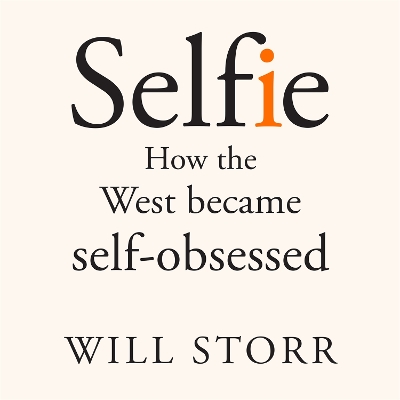
We live in the age of the individual.
We are supposed to be slim, prosperous, happy, extroverted and popular. This is our culture’s image of the perfect self. We see this person everywhere: in advertising, in the press, all over social media. We’re told that to be this person you just have to follow your dreams, that our potential is limitless, that we are the source of our own success.
But this model of the perfect self can be extremely dangerous. People are suffering under the torture of this impossible fantasy. Unprecedented social pressure is leading to increases in depression and suicide. Where does this ideal come from? Why is it so powerful? Is there any way to break its spell?
To answer these questions, Selfie by Will Storr takes us from the shores of Ancient Greece, through the Christian Middle Ages, to the self-esteem evangelists of 1980s California, the rise of narcissism and the selfie generation, and right up to the era of hyper-individualistic neoliberalism in which we live now.
It tells the extraordinary story of the person we all know so intimately – our self.
Exclusive to the audiobook, Selfie includes a unique 15-minute interview with the author, Will Storr, and reader, Jack Hawkins.
- ISBN10 1509844694
- ISBN13 9781509844692
- Publish Date 15 June 2017
- Publish Status Active
- Publish Country GB
- Publisher Pan Macmillan
- Imprint Macmillan Digital Audio
- Edition Unabridged edition
- Format Audiobook (WAV)
- Duration 11 hours and 55 minutes
- Language English
Reviews


Joséphine
In terms of history, though, I found Selfie to be illuminating. This is, after all, where journalists shine: when they recount events of the past. Through this book I learnt a great deal about how "self-esteem" became a key word of late 20th century pedagogy, and why even today, we believe so much in the importance of self-esteem, despite flimsy academic backing.
It was also fun to revisit basic concepts on acculturation and the construction of the self. Symbolic interactionism is a school of thought I related to a great deal during my undergraduate study of sociology, so reading this book felt like a sort of homecoming.
What disappointed me about Selfie was that it didn't exactly meet my original expectations. Given the title, I expected a greater focus on what drives excessive self-portraiture, the digital self and technology as a whole. Only one chapter towards the end dealt with this, and even then it lacked reference to theories that might explain the larger cultural impact of selfies and what drives them.
To be fair, the subtitle did allude to a breadth of history to answer the question of how we became so self-obsessed, so the time before selfies did have a legitimate place in the book. Although, what it's doing to us wasn't as extensively addressed. There were fleeting anecdotes demonstrating the impact of various developments on human behavioural changes but to accept these as answers, readers are required to extrapolate. Generalising from one or two human interest stories is poor (social) science.
More than anything, Selfie is a work of pop sociology — fascinating and informative but not one that can stand on its own if you're interested in learning more about the self and/or selfies.
